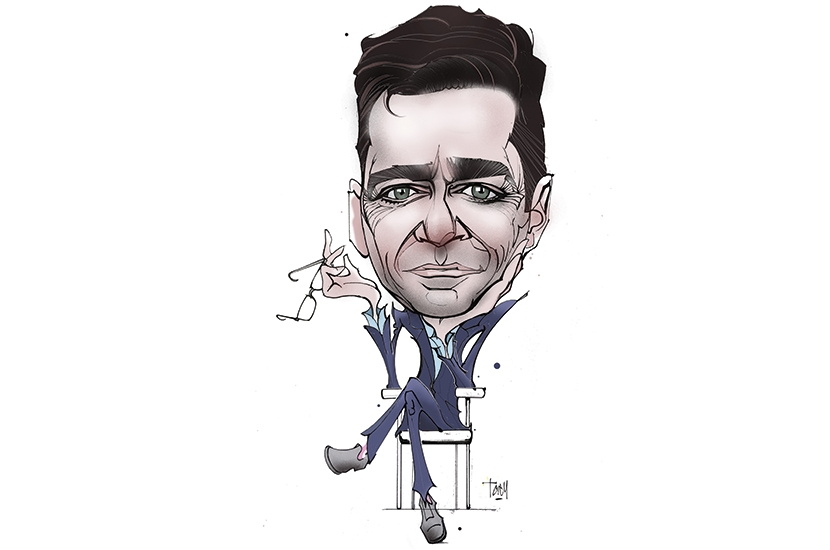Less than three weeks after Andy Burnham was elected mayor of Greater Manchester three years ago, the city was hit by the terrorist attack that claimed 22 lives at an Ariana Grande concert. Now Burnham is facing a very different sort of crisis as corona-virus sweeps through the north-west. Manchester is about two weeks behind London in the epidemic curve.
We had first met in his office to talk about the city and its politics. But that was at the start of last month — my questions, and his answers, were quickly overtaken by events. When we speak again, this time over Skype, much has changed. He has swapped the red-brick Victorian office in Manchester for his son’s bedroom in the loft, and he’s adjusting to being restricted to buying three craft lagers when he shops at Morrisons (‘They had to remove some offending items from my trolley because I had too many’). He has also had to adjust to a new role: Burnham has become an authoritative voice on the government’s response to Covid-19, due to his experience as health secretary during the 2009 swine flu pandemic.
That pandemic was caused by a new strain of flu that turned out to be no more dangerous than an ordinary seasonal outbreak. But at the time, the government feared it was a lot worse and was, at one stage, warning of 65,000 deaths. I ask Burnham how close he came to any form of lockdown. ‘Yes, we did debate those things,’ he says. ‘I suppose luckily, in some ways, swine flu started to hit its peak in July and the school holidays came just at the right moment.’ Perhaps, he says, this bred complacency in the long term. ‘Because swine flu was dealt with successfully, people thought, oh, it’s easy to deal with a pandemic.








Comments
Join the debate for just £1 a month
Be part of the conversation with other Spectator readers by getting your first three months for £3.
UNLOCK ACCESS Just £1 a monthAlready a subscriber? Log in